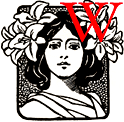 hile in the fairy kingdom, Anodos finds a hidden castle with a magical library. He explains the magic of the books he discovers in the library of the fairy palace, but although the language he uses intends to convince us of the amazing powers of the books, the description itself seems to indicate a relatively ordinary experience: "If, for instance," he tells us, "it was a book of metaphysics I opened, I had scarcely read two pages before I seemed to myself to be pondering over discovered truth, and constructing the intellectual machine whereby to communicate the discovery to my fellow men. "
hile in the fairy kingdom, Anodos finds a hidden castle with a magical library. He explains the magic of the books he discovers in the library of the fairy palace, but although the language he uses intends to convince us of the amazing powers of the books, the description itself seems to indicate a relatively ordinary experience: "If, for instance," he tells us, "it was a book of metaphysics I opened, I had scarcely read two pages before I seemed to myself to be pondering over discovered truth, and constructing the intellectual machine whereby to communicate the discovery to my fellow men. "
Reading a book on metaphysics usually means that you want to acquire information and this often involves questioning the material so that you can better understand it and explain it to others. Although Anodos attributes magical properties to this experience, it seems as if he is using a science book as science books were meant to be used. A similar problem can be seen with his description of other reading other genres:
Or if the book was one of travels, I found myself the traveller. New lands, fresh experiences, novel customs, rose around me. I walked, I discovered, I fought, I suffered, I rejoiced in my success. Was it a history? I was the chief actor therein. I suffered my own blame; I was glad in my own praise. With a fiction it was the same. Mine was the whole story. For I took the place of the character who was most like myself, and his story was mine; until, grown weary with the life of years condensed in an hour, or arrived at my deathbed, or the end of the volume, I would awake, with a sudden bewilderment, to the consciousness of my present life, recognising the walls and roof around me, and finding I joyed or sorrowed only in a book. [140-41]
Again this situation seems like an altogether typical reading experience so the fact that Anodos apparently attributes it to fairy magic seems a little peculiar, suggesting that in the real world Anodos�s power of imagination might have been lacking.
Questions
1. What roles do literature and reading have within the story? In what was is this similar (or different) to Jane�s early preoccupation with literature in Jane Eyre.
2. The above passage seems to suggest that some of the magic in the fairy kingdom can also be found in the real world. Can this be seen anywhere else within the novel?
3. What effect does the repetition of first person pronouns have on the audience in the quoted passage? Does it draw them further into the story or does it distance them from the protagonist and from the action?
4. What does it mean that MacDonald labels this novel "a faerie romance for men and women"? Is he emphasizing the fact that it can be enjoyed by both genders or that it is somehow material intended for adults?
References
MacDonald, George. Phantastes. Grand Rapids, Michigan: Wm. B. Eerdmans, 2000.
Last modified 10 February 2004